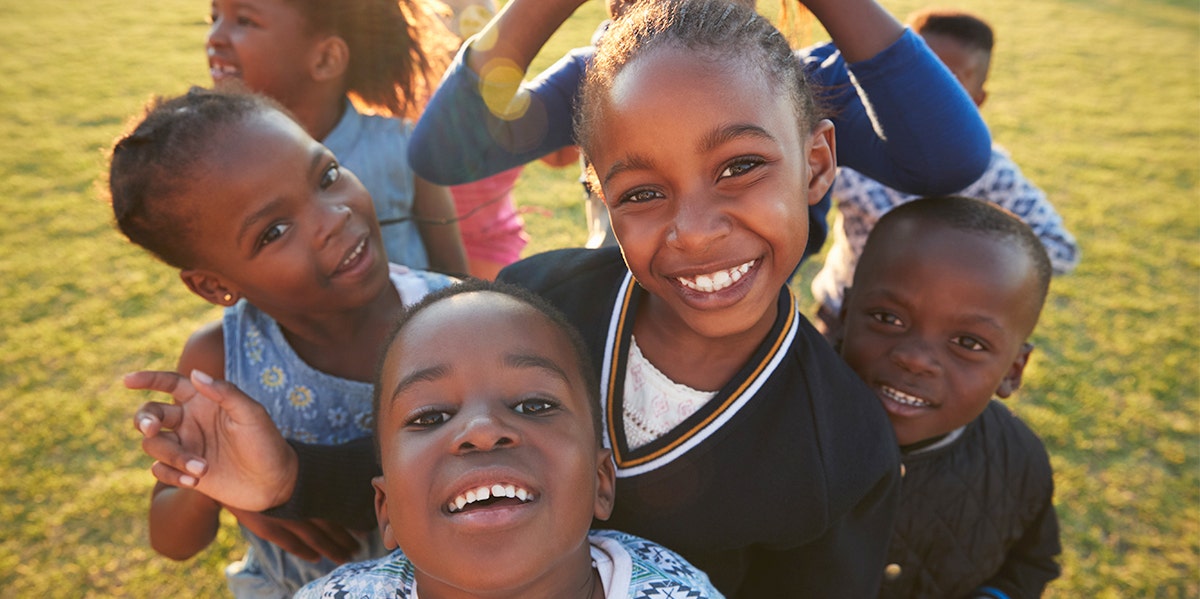Black Children Shouldn't Have To Worry About Anything Other Than Being Children
Black children shouldn't have to consume so much trauma.
 Monkey Business Images / Shutterstock
Monkey Business Images / Shutterstock I’ve always wondered what it would feel like to be raised in a country without having any extra baggage placed on you when you’re young — how it would feel to just enjoy being a child, to just be carefree and unworried.
Growing up, a lot of the conversations I had with my parents were about police.
And the first lessons I learned were about how to interact with the police — if it were to ever come down to a circumstance like that.
And I think that is the reality for so many Black children. They don’t get to be children.
RELATED: 4 Ways To Talk To Your Kids About Racism, Protests & Police Brutality Against Black People
There was a story in the news recently about a 9-year-old girl who was pepper-sprayed by police while handcuffed in Rochester, NY.
In the video footage taken from the officer’s body cams, you can hear one officer saying that she was “acting like a child," to which the girl responded: “I am a child.”
There was the murder of Tamir Rice by police when he was only 12-years-old while he was playing with a toy gun in a public park.
There has fundamentally always been a different kind of education for Black children. They have to be consistently taught about the horrors that are inflicted onto their bodies, which further adds to their trauma.
There is no luxury of innocence and there is no avoiding conversations surrounding race – not when we can’t hide within our skin color. It’s the first thing people see, and the first thing people use to judge.
It’s a privilege to not have to think about certain things when it comes to race. It’s a privilege to never have to listen to your parents give you the talks about "what if." And I don’t think many people quite realize.
Growing up, I remember little Black boys in my neighbourhood would have to go back inside when the streetlights came on for fear of being labeled as a "hoodlum."
And these kinds of scenarios have been happening for so many years.
When schools in America began to integrate, you’d see pictures in history books of little Black children walking through mobs of white people as they would scream and shout at them. Often even throwing things or spitting at them.
RELATED: What Does BIPOC Stand For?
This rhetoric that Black children have to appear stronger and worry about their own appearances when venturing out into the world is a direct result of too many centuries of absolute pain.
I’m only 20, but when I think about having children in the future, there is that seed of fear instilled in me at having to have those same conversations that I was burdened with.
It’s just more attention that needs to be put in when doing anti-racist work and actively fighting against systems that have been put into place for too long.
This is also a conversation into how often Black children consume media of Black death at the hands of police.
While other children who are non-Black are taught to listen to follow directions of the police, Black children are taught the opposite. And it’s even more detrimental when they see it on the news – of why exactly they need to be wary of police officers.
They are talking in these videos of trauma, when they then have to go out in public in the same skin that is being shot at, beaten down, and spit on.
I think that’s why it’s so important for movies and other forms of media to exist that show Black people in situations other than trauma.
Films like Black Panther that show Black children the other side – the better side. Black people can be superheros, they can be kings and queens of countries.
Black bodies can exist in a world of positivity and love.
Nia Tipton is a writer living in Chicago. She covers pop culture, social justice issues, and trending topics. Follow her on Instagram
